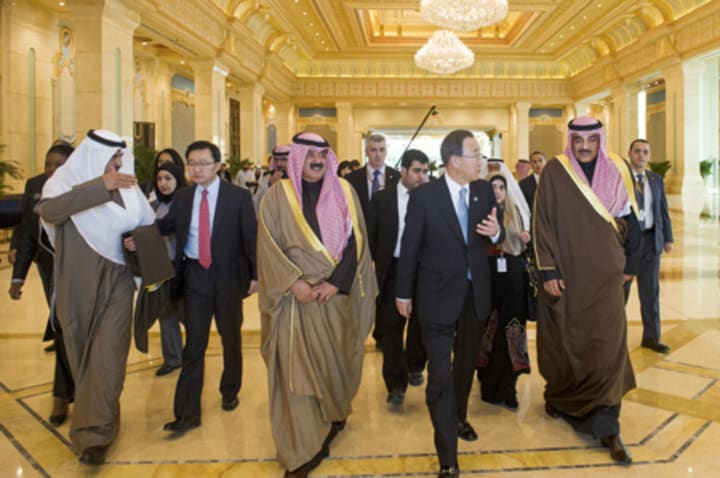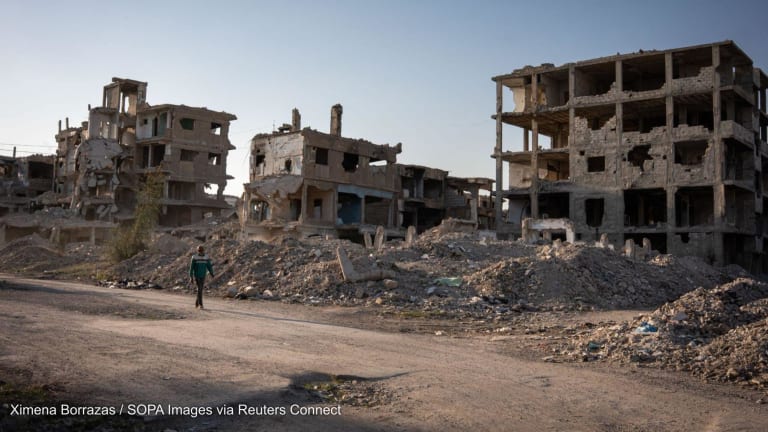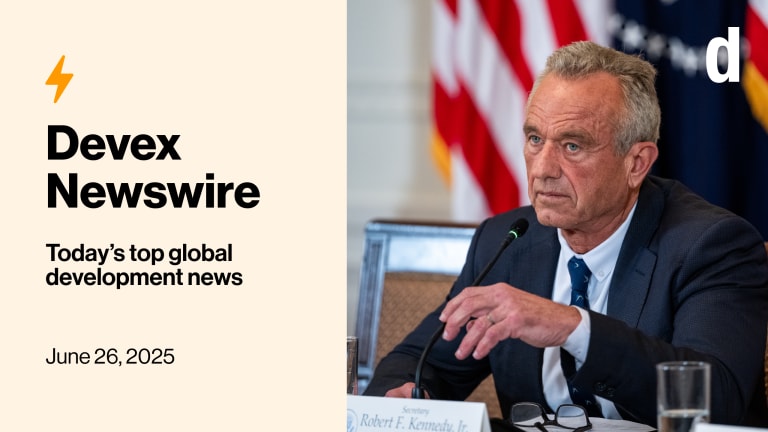
World leaders are gathering today for a highly anticipated donor conference on Syria. Pledges continue to trickle in as concerns about an unequal distribution of aid within the country became more pronounced.
Sheikh Sabah al-Ahmad al-Sabah, the conference’s host, pledged $300 million in humanitarian aid. Leaders of the UAE pledged the same figure, according to the state news agency WAM. On Tuesday, President Barack Obama announced $155 million in humanitarian aid, bringing total U.S. assistance to Syrians to $365 million. The European Union, meanwhile, said it will pledge an additional €100 million ($134.6 million) at the conference.
The pledges fall short of a $1.5 billion appeal launched in December by the United Nations. Yet there are other concerns.
Only a “fraction” of international aid reaches people in opposition-held areas, Médecins Sans Frontières said in a statement Tuesday. Nearly all international aid go to government-controlled areas, it added.
“Providing humanitarian aid in wartime requires flexibility and responsiveness, both on the part of aid agencies and institutional donors … Otherwise, aid remains a passive witness to the suffering it is intended to ease,” the organization argued. MSF’s statement came days after a missile almost hit the organization’s field hospital in the north, shedding light on another rising challenge in Syria: logistics.
U.N. Office for the Coordination of Humanitarian Affairs operations director John Ging voiced the same sentiment in New York on Monday, Jan. 28. He underscored the importance of reaching an agreement to cross borders, “irrespective of whose control they are under.”
However vital, the calls are in danger of falling on deaf ears. Fighting continues between the Syrian government and opposition groups. The U.N. Security Council also remains in a deadlock that is preventing the body to take decisive action to end the 22-month-old conflict. This is even after U.N.-Arab League envoy Lakhdar Brahimi told the council Tuesday (Jan. 29) that it “simply cannot continue to say ‘we are disagreement, therefore, let’s wait for better times.’”
“Syria is being destroyed bit by bit,” he said.
Aid officials hope that donor representatives at the Bayan Palace on the outskirts of Kuwait City will respond to those calls.
Read more development aid news online, and subscribe to The Development Newswire to receive top international development headlines from the world’s leading donors, news sources and opinion leaders — emailed to you FREE every business day.




